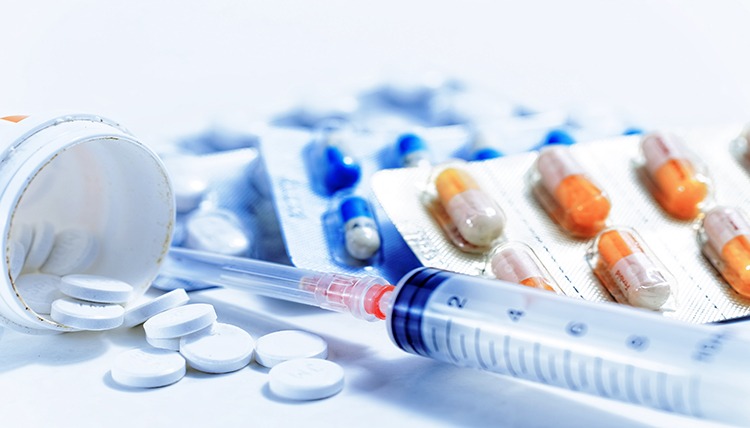Generic Drugs: Tracking US Approvals
In 2020, the FDA approved or tentatively approved 948 abbreviated new drug applications for generics, including 72 first generics, which was on par with recent years. The COVID-19 pandemic had an impact as more than 660 supplements and 50 original applications were approved for drug products used to treat patients with COVID-19. What are the key highlights?
Tracking generic-drug approvals
In calendar year 2020, the FDA approved or tentatively 948 abbreviated new drug applications (ANDAs) for generic drugs, including 72 first generics, levels which were relatively consistent compared to recent years, according to a recent report by the FDA’s Office of Generic Drugs (OGD). In calendar year 2019, the FDA approved or tentatively approved 1,014 ANDAs, which included 107 first generic drugs.
First generics. “First generics” are the first approval by the FDA that permits a manufacturer to market a generic drug product in the US. The FDA considers first generics to be important to public health and prioritizes review of these submissions. Of the 72 first generics approved in 2020, the OGD report highlighted six as “significant.” These include generics of the following: (1) Daraprim (pyrimethamine) tablets, an anti-parasitic drug to treat toxoplasmosis; (2) Pradaxa (dabigatran etexilate) capsules for preventing stroke and systemic embolism; (3) Proventil HFA (albuterol sulfate inhalation) aerosol for treating or preventing bronchospasms; (4) Symfi and Symfi Lo (efavirenz, lamivudine, and tenofovir disoproxil fumarate) tablets for treating HIV; (5) Tecfidera (dimethyl fumarate) delayed-release capsules for treating multiple sclerosis; and (6) Glucagon (glucagon) for treating severe hypoglycemia.
Complex generics. Of all the generic-drug approvals, in 2020, the FDA approved 35 complex generic drugs, which are identified as such through the FDA’s Competitive Generic Therapy designation. As a means to increase drug competition, the FDA Reauthorization Act of 2017 created a new pathway by which the FDA may, at the request of the applicant, designate a drug with “inadequate generic competition” as a competitive generic therapy (CGT). At the request of the applicant, the FDA may also expedite the development and review of an ANDA for a drug designated as a CGT. In 2019, the FDA approved 110 complex generic drugs, which represented 11% of the generic drug product approvals in 2019.
COVID-19 and generic drugs. In 2020, the FDA approved more than 660 supplements and 50 original applications for drug products used to treat patients with COVID-19, according to the OGD report.
During the COVID-19 public health emergency, the FDA and the OGD identified and prioritized the assessment of generic drug submissions involving potential treatments and supportive therapies for patients with COVID-19 and used tools and strategies and took regulatory and scientific action intended to potentially help accelerate access to those products. The actions included establishing the infrastructure to rapidly complete tasks and resolve review issues in support of taking actions on critical COVID-19 related generic drugs. These included products such as antibiotics, sedatives used in ventilated patients, anticoagulants, and pulmonary medications.
The FDA also expedited bioequivalence assessments of ANDAs, ANDA amendments, and responses to multiple controlled correspondences in order to assist the generic pharmaceutical industry with overcoming disruptions caused by the COVID-19 public health emergency and to help improve the supply chain for drug products for treating COVID-19.
Other numbers. In 2020, OGD performed more than 550 assessments related to the safety and therapeutic equivalence of generic drug products, including safety assessments of excipients, evaluation of safe levels for extractables and leachables, and comparative assessments of user interface for substitutability and therapeutic equivalence, to ensure that the proposed generics had the same safety profile as their reference listed drug (RLD). Of the assessments conducted, the FDA performed more than 150 comparative analyses assessments. Comparative analysis helps to support findings of sameness of the generic product to its RLD, and to support therapeutic equivalence, the ability of a bioequivalent and pharmaceutically equivalent generic product to have the same clinical effect and safety profile as its RLD when administered to patients under the conditions specified in the labeling.
Preparing for GDUFA III
In 2020, the FDA and the pharmaceutical industry entered their third year of the reauthorized generic drug user-fee program, which was first enacted by Congress in 2012 and reauthorized in 2017 (GDUFA II). The GDUFA II program includes performance goals with specific timeframes for original ANDAs and prior approval supplements (PASs) for post-approval changes requiring a supplemental submission and approval, and amendments to PASs. Although the FDA and the industry are two years away from the end of GDUFA II, FDA is gearing up for GDUFA’s third iteration now. In July 2020, the agency began the process of considering public input, meeting with stakeholders, and engaging in negotiations with the generic drug industry as part of the process for Congress to reauthorize GDUFA for another five years (i.e., GDUFA III).
International collaborations and harmonization
In 2020, the OGD also progressed harmonization efforts. Currently, the OGD leads the International Council for Harmonization (ICH) Generic drug Discussion Group (GDG). In June 2020, the GDG started its second year to focus on prioritizing future potential topics for harmonization that will include more complex products. The ICH M13 expert working group, formed in July 2020, represents the first ever ICH guideline (M13) focusing on harmonizing bioequivalence study design and standards for generic drugs. In addition to ICH engagement, Global Generic Drug Affairs (GGDA), the OGD global affairs program, continued OGD efforts to create common global development standards for generic drugs by working with partners inside and outside the FDA. GGDA continued leading efforts in numerous working groups within the International Pharmaceutical Regulators Program (IPRP) and the Global Bioequivalence Harmonization Initiative (GBHI).






